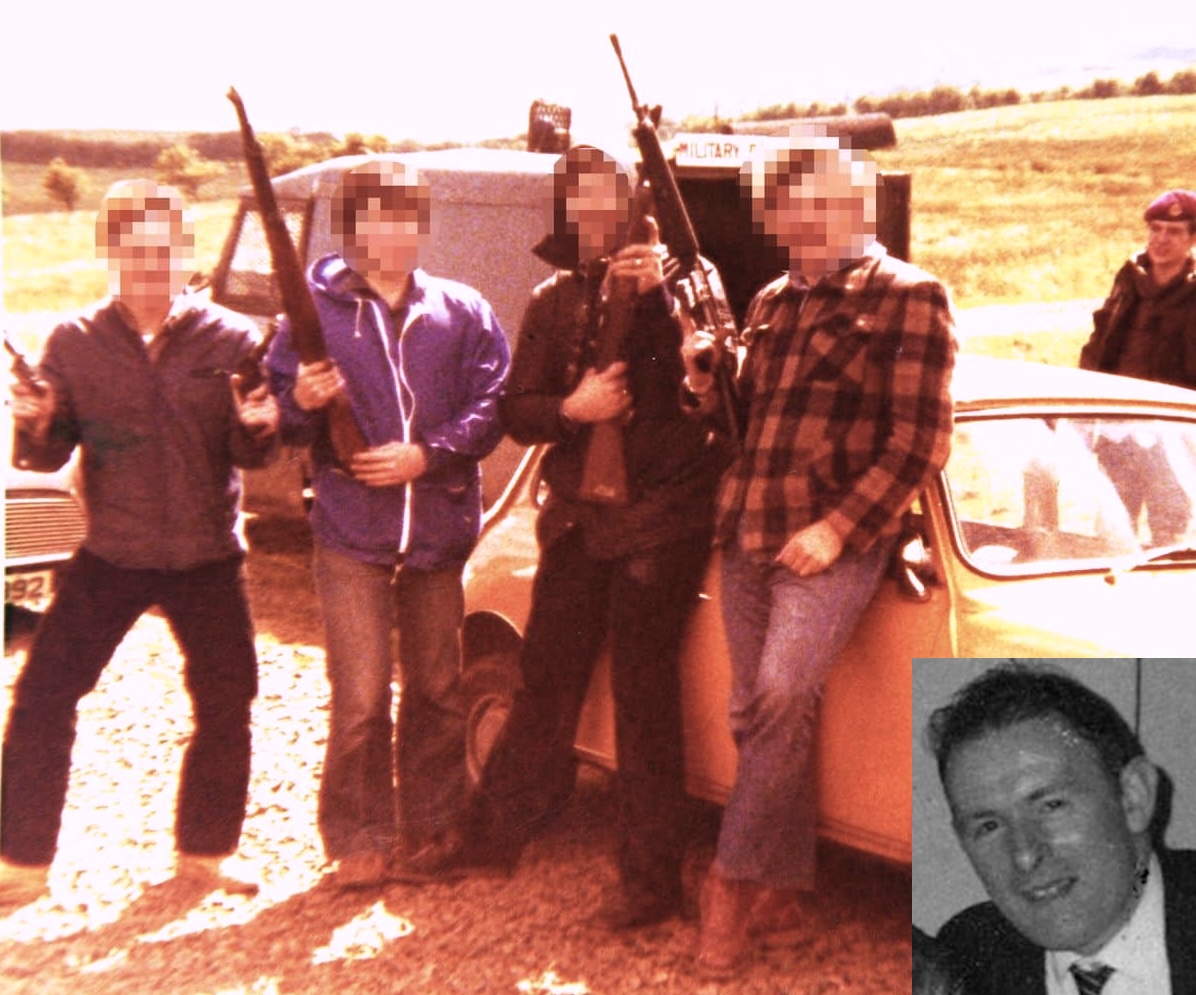
A former British soldier is to be prosecuted for one of the first ‘shoot-to-kill’ targeted murders to be carried out by the British Army in the North.
Patrick McVeigh (pictured, inset) was gunned down in 1972 by the British Army’s paramilitary-style Military Reaction Force (MRF).
Established by General Frank Kitson, who died last month, the British Army unit carried out gangster-style, drive-by attacks against Catholic civilians in what was considered a ‘counter insurgency’ strategy. It has been implicated in 17 killings.
Mr McVeigh, a father-of-six, was shot dead in west Belfast after he stopped to chat to a group who were manning a civilian checkpoint in the area.
He was hit by submachine gunfire, and four others were wounded. The victims had been approached by a car with men inside, which then drove away and was waved through a military checkpoint.
At Mr McVeigh’s inquest, soldiers from the car – who were not cross-examined – falsely claimed they had been fired on. The case was reopened in 1993, and soldiers were re-interviewed in both England and Australia, but no charges were brought.
One former soldier, named as ‘Soldier F’, has now been charged with his killing and the attempted murder of six other men in the early 1970s, including the attempted murder of two people in a separate shooting in west Belfast, also in May 1972.
However, prosecutors have claimed there is insufficient evidence to charge two other former soldiers over the MRF murder of teenager Daniel Rooney in west Belfast, in September 1972. The teenager’s remains were exhumed from Milltown Cemetery in 2016 as part of the investigation into his death.
In media interviews, Patricia McVeigh said her family had been devastated by the murder of her father.
“It was a real injustice when my father was killed, he was assassinated, his character was assassinated, we need to redress this and get the balance right,” she said.
“He wasn’t a gunman, never was, we need his name cleared.”
Ms McVeigh’s said her family has fought for justice for 35 years.
“I just wish it was the same for everybody,” she said. “They are all deserving cases.”
Ms McVeigh said her campaign to uncover the truth remained constant over the years.
“Well, there wouldn’t have been a week passed, or a day or two passed, that you weren’t trying to plan ahead, what can I do next? Who can I write to?” she said.
She said she felt “very emotional” about the decision.
“I am just so sorry that we grew up without a father, when he was such a good person.”
Ciarán MacAirt, from the research charity Paper Trail, has uncovered documents linked to the MRF in the past, including unredacted files naming members if the unit.
He said: “Mr McVeigh’s family along with the other families impacted by Britain’s Military Reaction Force have campaigned tirelessly for justice for over half a century. They are inspirations to all of our families who seek truth and justice.
“Secret British Army files Paper Trail discovered prove that the MRF deliberately targeted unarmed civilians including fathers and young teenagers. The British state then covered up these murders and attempted murders whilst its MRF continued unabated.
“Whilst we may hope that justice will finally prevail, Britain’s disgraceful Legacy Act is designed to deny these families equal access to due process of the law. Britain wants to bury its war crimes in Ireland and protect it killers.
“Few other extra-legal British Army units represent Britain’s dirty war in Ireland more than its MRF death squad. The families will continue their campaigns to expose them and hold them to account.”
Alan Brecknell from the Pat Finucane Centre said the prosecution decision “proves compellingly that the shameful legacy legislation due to come into force on 1 May is completely unfit for purpose”.
Sinn Féin West Belfast MP Paul Maskey said “rulings like today is exactly why the British government wants to slam the door shut on families ever getting justice with its sham Legacy Act which is about covering up the role of shadowy state forces, like the MRF, who were involved in the killing of Irish citizens”.
![[Irish Republican News]](https://republican-news.org/graphics/title_gifs/rn.gif)
![[Irish Republican News]](https://republican-news.org/graphics/title_gifs/harp.gif)

